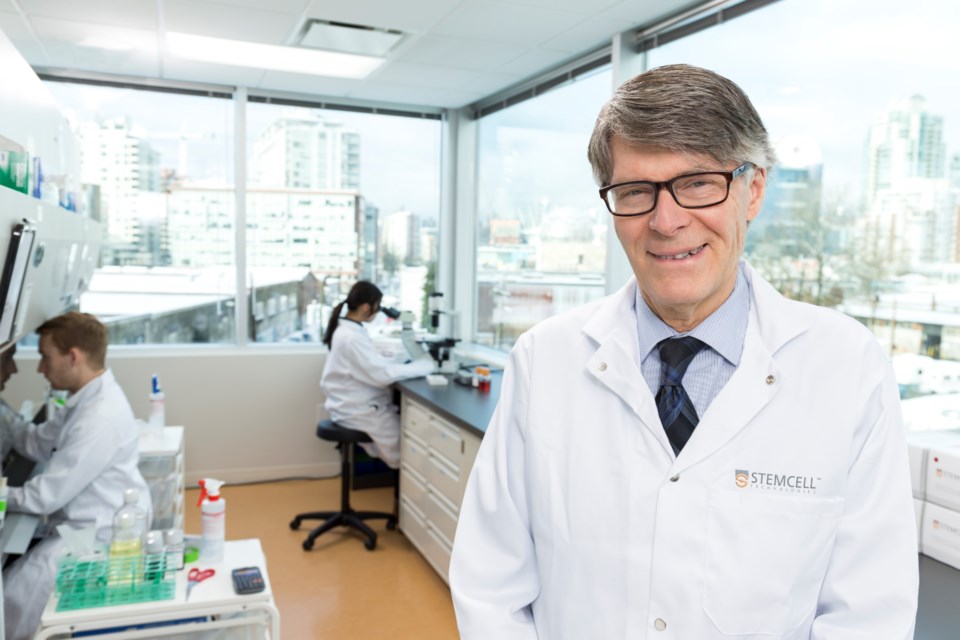Vancouver’s Stemcell Technologies has been granted Food and Drug Administration (FDA) approval for a device it developed that helps improve diagnosis and treatment outcomes in patients with multiple myeloma, a type of incurable plasma cell cancer.
The FDA has granted de novo classification to Stemcell's EasySep human bone marrow CD138 positive selection kit as a "first-of-its-kind in vitro
diagnostic (IVD) medical device for hematopoietic cell enrichment," Stemcell says in a press release.
This device can be used in diagnostic labs in the U.S. as part of diagnosis and treatment of multiple myeloma and opens the door to develop other kits for other types of cancer.
“Because we’ve sort of blazed a process with the FDA, and gotten them to recognize cell enrichment as part of the diagnostic workflow, it’s sort of broken down that first barrier for us to bring additional kits to market,” Coral-Ann Lewis, Stemcell's associate director of product management of hematology told Business in Vancouver.
Multiple myeloma is a type of cancer of plasma cells that causes bone pain and thinning.
To diagnose multiple myeloma, technicians need to identify abnormal plasma cells. EasySep helps diagnostic labs cultivate an “enriched” population of abnormal plasma cells. This aids in both detection and in tailoring therapies in personalized medicine. Although multiple myeloma is incurable, improved personalized treatments can improve patient outcomes.
“There are multiple abnormalities in this cancer, and they respond to different therapies,” said Stemcell founder and CEO Allen Eaves. “So this is giving you the personalized medicine idea where you’re now going to be able to target a specific chemotherapy agent based on the mutation.”
The FDA approval helps open the door to other markets, such as Europe and Canada.
"We are actually registered as a Class 1 device in the EU, so our launch will be selling in the EU as an IVD (in vitro device) medical device, as well as Canada and the United States," Lewis said.



